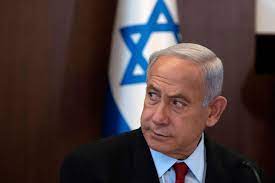Palestinian militants have carried out the deadliest single attack on Israel’s forces since the Hamas raid that triggered the war, killing 21 soldiers, the military said Tuesday.
Hours later, the military announced that ground forces had encircled the southern city of Khan Younis, Gaza’s second largest. That marked a major advance, but it was unclear how much closer it would bring Israel to defeating Hamas or freeing Israeli hostages — two central war aims that have proved increasingly elusive — or what impact it would have on cease-fire talks that appear to be gathering pace.

The Associated Press (AP) said Prime Minister Benjamin Netanyahu mourned the soldiers but vowed to press ahead with the offensive until “absolute victory” over Hamas. But Israelis are increasingly divided on whether such a victory is possible — and whether it is compatible with bringing back the hostages. In previous conflicts, large numbers of casualties have pressured Israel to halt military operations.
A senior Egyptian official said Israel has proposed a two-month cease-fire in which the hostages would be freed in exchange for the release of Palestinians imprisoned by Israel and top Hamas leaders in Gaza would be allowed to relocate to other countries.
EU pushes for Palestinian statehood, rejecting Israeli leader’s insistence that it’s off the table
The official, who was not authorized to brief media and spoke on condition of anonymity, said Hamas rejected the proposal and is insisting that no more hostages will be released until Israel ends its offensive and withdraws from Gaza. Israel’s government declined to comment on the talks.
The official said Egypt and Qatar — which have brokered past agreements between Israel and Hamas — were developing a multistage proposal to try to bridge the gaps. Families of the hostages have called for Israel to reach a deal with Hamas, saying time is running out to bring their relatives home alive.
Israel launched its offensive after Hamas crossed the border Oct. 7, killing over 1,200 people and abducting some 250 others. More than 100 were released in November during a weeklong cease-fire.
The offensive has caused widespread death and destruction, displaced an estimated 85% of Gaza’s 2.3 million people and left one-quarter facing starvation.
The war has heightened regional tensions, with Iran-backed groups in Lebanon, Syria, Iraq and Yemen attacking United States and Israeli targets in support of Palestinians. The U.S. and Britain launched another wave of strikes Monday against Yemen’s Houthi rebels, who have targeted international shipping in the Red Sea.
Hamas is believed to have suffered heavy losses but has continued to put up stiff resistance in the face of one of the deadliest air and ground offensives in recent history. Militants are still battling Israeli forces across the territory and launching rockets into Israel.
On Monday, Israeli reservists were preparing explosives to demolish two buildings in the built-up Maghazi refugee camp in central Gaza, when a militant fired a rocket-propelled grenade at a tank nearby. The blast triggered the explosives, causing both two-story buildings to collapse on the soldiers inside.
At least 217 soldiers have been killed since the ground offensive began in late October, including three killed in a separate event Monday, according to the military.
Netanyahu acknowledged it was “one of the hardest days” since the war began and said the military would launch an investigation. “In the name of our heroes, and for our own lives, we will not stop fighting until absolute victory,” he wrote on X, formerly known as Twitter.
Meanwhile, Gaza’s Health Ministry said Tuesday that the bodies of 195 people killed in Israeli bombardments were brought to hospitals in the previous 24 hours. Hospitals also received 354 wounded, it said.
The fatalities brought the death toll in the strip to 25,490 since the war began, the ministry said. Another 63,354 were wounded, it added. The ministry’s count does not differentiate between civilians and combatants.
Israel claims to have killed thousands of militants and to have largely defeated Hamas in northern Gaza in operations that caused widespread destruction to that part of the territory, including Gaza City. In recent weeks the offensive has focused on Khan Younis and refugee camps in central Gaza, including Maghazi, that date back to the 1948 war surrounding Israel’s creation.
The military said its forces had killed dozens of militants in Khan Younis in recent days and had encircled the city, without providing evidence. It was not possible to independently confirm those claims.
Israel believes Hamas commanders may be hiding in vast tunnel complexes beneath Khan Younis, the hometown of the group’s top leader in Gaza, Yehya Sinwar, whose location is unknown. Hamas leaders are also believed to be using hostages as human shields, further complicating any rescue efforts.

